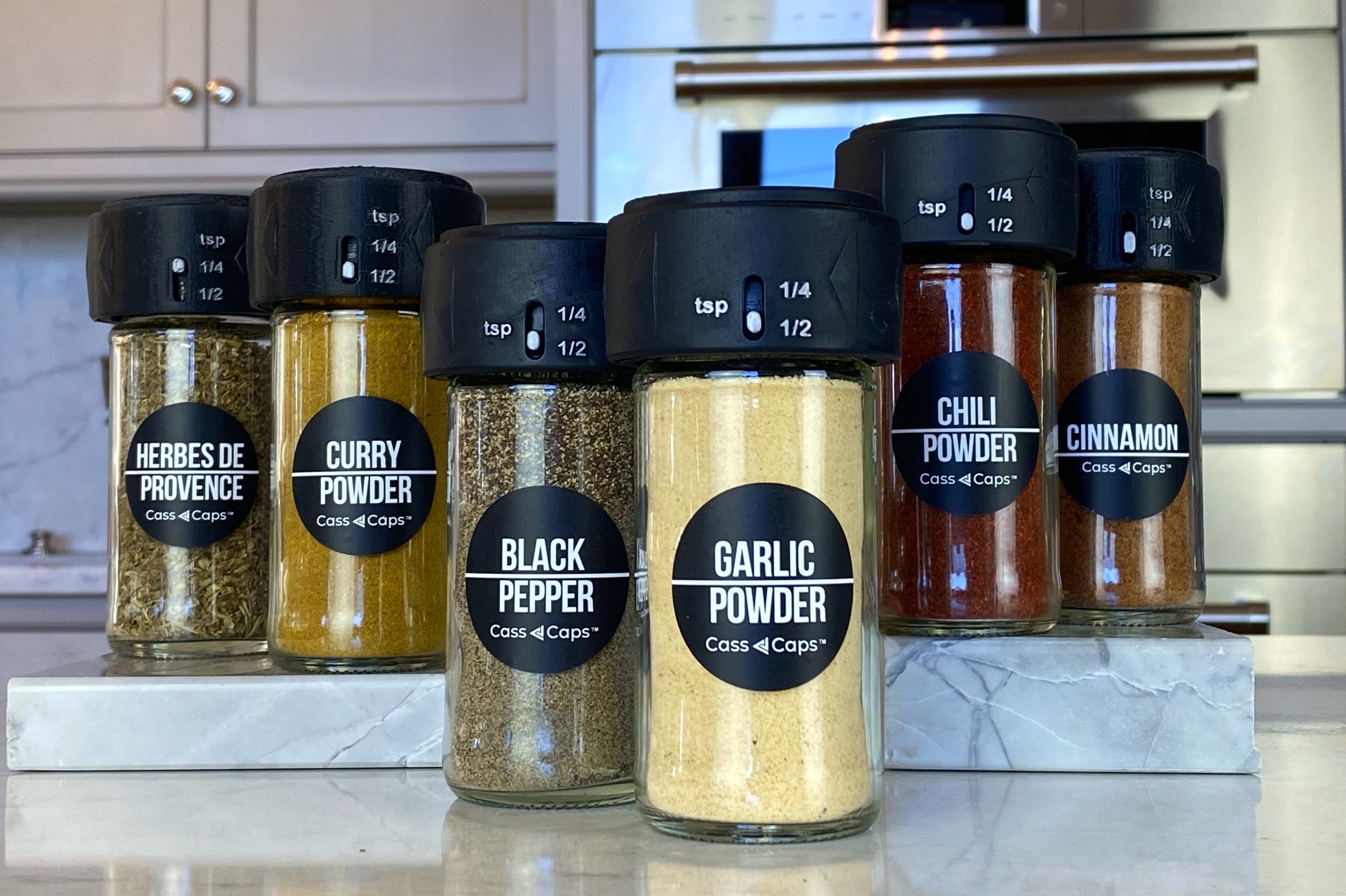Upstate New York Start-up Incubator Guides Hardware Entrepreneurs Through Manufacturing Process
A spice bottle cap that pre-measures your spices. A breastmilk pasteurizer for home use. Gluten-free, wheat stem straws. A battery for storing renewable energy in buildings.
These are just a few of the inventions created by entrepreneurs in the Prototype-to-Production Hardware Accelerator program at Rev: Ithaca Startup Works, an incubator supported by a $750,000 grant from the U.S. Department of Commerce’s Economic Development Administration (EDA). The program supports entrepreneurs who aim to scale their business, manufacture their products, and –create new jobs and spur economic growth in Upstate New York.

Erika LaCasse co-founded CassCaps and is part of the first cohort of the Prototype-to-Production Hardware Accelerator program at Rev: Ithaca Startup Works, an incubator funded through a EDA grant.
“The program helps people, as efficiently as possible, move into production,” said Ken Rother, director of Rev who also leads its hardware accelerator programs.
In 2019, Rev, through its partners at Cornell University, received the EDA grant through the Regional Innovation Strategies (RIS) program (now known as Build to Scale). The grant was matched with $750,000 in local funds.
Erika LaCasse, who co-founded CassCaps, will soon start delivering her product, a patented device that eliminates the need for measuring spoons by measuring spices straight out of the bottle. As one of eight entrepreneurs in the first Prototype-to-Production cohort, LaCasse received help with taking her prototype to the manufacturing stage.
“The program set me up for success in a process that I didn’t know anything about,” said LaCasse, a 2019 graduate of Cornell University.
The program guided the entrepreneurs through questions such as: “How do I make an injection mold?” and “Can a manufacturer make my product cheaply and reliably?” and “What documents, specs, and product designs are needed for the manufacturing process?”
LaCasse raised $65,288 over the summer through a Kickstarter campaign. She is currently refining her injection mold and preparing to start the manufacturing process.

Cohort members were connected to local manufacturers and investors, while also meeting regularly for presentations, mentorship and collaboration.
Norma Byron, president of Ashlawn Energy, is also moving closer to manufacturing her product, a flow battery that will allow commercial buildings to store electricity from renewable energy. (View video about Ashlawn Energy.)

Norma Byron is president of Ashlawn Energy, a company that makes a flow battery that allows commercial buildings to store electricity from renewable energy.
Energy storage allows for the capture of energy, from devices like solar panels, for use later. Byron developed the battery with support from the Koffman Southern Tier Clean Energy Incubator and Binghamton University in Upstate New York.
Before starting the hardware accelerator, Byron had filed five patents and had prototypes that proved the technology could deliver results. She was ready to start manufacturing when the Rev program started.
“We were ripe to participate in this program. We were looking to scale up,” Byron said.
Byron looks forward to manufacturing her batteries in Upstate New York.
“They’ve got the skill set, they know how to do it,” she said of the region’s workforce.
The program builds on the success of Rev’s Napkin-to-Protype Hardware Accelerator, which was funded by a $500,000 EDA grant through the RIS program in 2014. The project, matched with $879,298 in local funds, supported early-stage entrepreneurs.
Rev’s current Prototype-to-Production cohort members are nearly done with the 60-week program. The EDA grant supports a second cohort, which will kick off in 2021. Interested entrepreneurs can visit revithaca.com/hardware to learn more.








